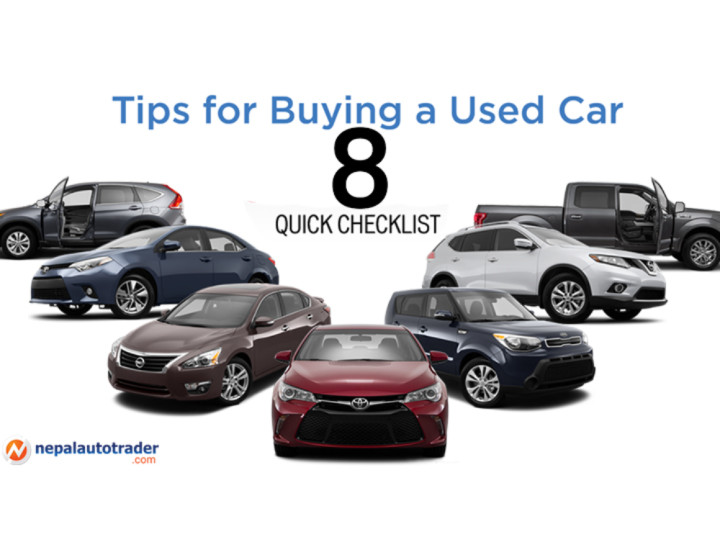
Buying a second-hand car can often be one of the smartest buying decisions. While new car purchases tend to increase with a rising economy, used cars can provide a great alternative, especially in Nepal. Buying a second-hand car in Nepal can be a great way to save money, but it's important to be mindful of the potential problems that can arise. By avoiding these common pitfalls, you can be sure to make a smart and informed decision when buying a second-hand car. Regardless of why you are buying it, a car is a significant investment and holds a special value to its owner. You can buy a second-hand car or a pre-owned car from an individual seller (a regular car owner), a broker, or a company.
When it comes to buying a second-hand car in Nepal, there are a few things to be mindful of to avoid any potential problems down the road. When buying a second-hand car, you have the chance to save money while still getting a reliable vehicle. However, since it has been previously owned, it may have issues from normal wear and tear. To avoid costly mistakes, it's important to be mindful of potential problems and make an informed decision when purchasing a second-hand car. Therefore, you have a lot of options. However, you need to be attentive and cautious while pursuing those options. Here are 8 things to avoid when buying a second-hand car in Nepal:
1. Accident-Damaged Cars:
Cars that have been in major accidents may have hidden structural or mechanical problems. These cars can be dangerous to drive and may require costly repairs. They may also have rust and other issues that can cause problems. Rust can indicate a lot of wear and tear on the car, and can also be a sign of poor maintenance. Avoid buying a car that has been in a major accident.
2. No Service History:
Avoid buying a car without a full-service history, as this can indicate a lack of maintenance and a higher risk of problems. A full-service history will give you an idea of when the car was last serviced and what was done. It's best to avoid buying a car without a full-service history, as it can lead to costly repairs and a lack of information about the car's condition. A full-service history can also give you peace of mind and confidence in your purchase.
3. Tampered Odometers:
Some sellers may tamper with the odometer to make the car appear to have less mileage than it does. Tampering with the odometer is illegal and can be a sign of a serious problem with the car. Always ask for the car's service history and compare it with the odometer reading to ensure that the mileage is accurate. Be wary of cars that have had their odometers rolled back.
4. Modified Cars:
Avoid buying a car that has been modified or customized, as these modifications may have been done poorly and can affect the car's performance and safety. They have a higher risk of breakdowns and require more frequent repairs. The additional parts and systems added to the car can cause problems and may not have been designed to work together. It also can affect the car's safety and reduce fuel efficiency.
5. High Mileage Cars:
Avoid buying a car that has been driven for a high number of kilometers, as this can indicate a lot of wear and tear on the engine and other mechanical parts. They may require more frequent maintenance and repairs, which can be costly. Cars with high mileage can have a reduced resale value compared to cars with lower mileage. They may have worn-out tires, and it's important to check the tire tread depth.
6. Cars Over 10 Years Old:
Cars that are more than 10 years old may not meet safety and emissions standards and may have higher maintenance costs. Avoid buying a car that is over 10 years old. These cars may have reached the end of their lifespan and may require costly repairs or replacements. They may not have the latest features, such as advanced safety systems, infotainment systems, and fuel-efficient engines, that are present in newer cars.
7. Cars Sold by Private Individuals and Below Market Value:
Be wary of cars that are being sold by a private individual, as they may not be honest about the car's condition or history. It's best to buy from a reputable dealer who can provide you with all the necessary information about the car. Be careful of cars that are being sold for a price that is significantly lower than market value, as this can indicate a problem with the car.
8. Foregoing the Test Drive
A test drive will allow you to identify any potential mechanical issues with the car, such as engine or transmission problems, braking issues, or suspension problems. It will also allow you to check the car's handling and maneuverability, which can help you determine if the car is comfortable to drive and if it's a good fit for your needs. This will help you make an informed decision about the car's condition and whether it's worth purchasing.
For the latest auto news in Nepal, follow nepalautotrader.com on Twitter, Facebook, LinkedIn, Reddit, Instagram and subscribe to our YouTube channel.